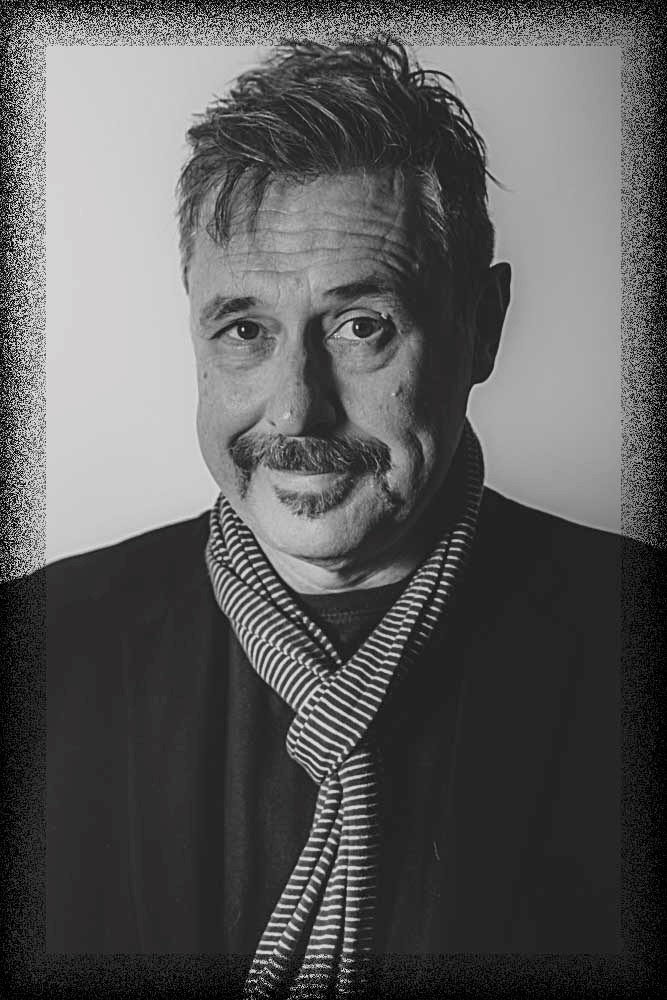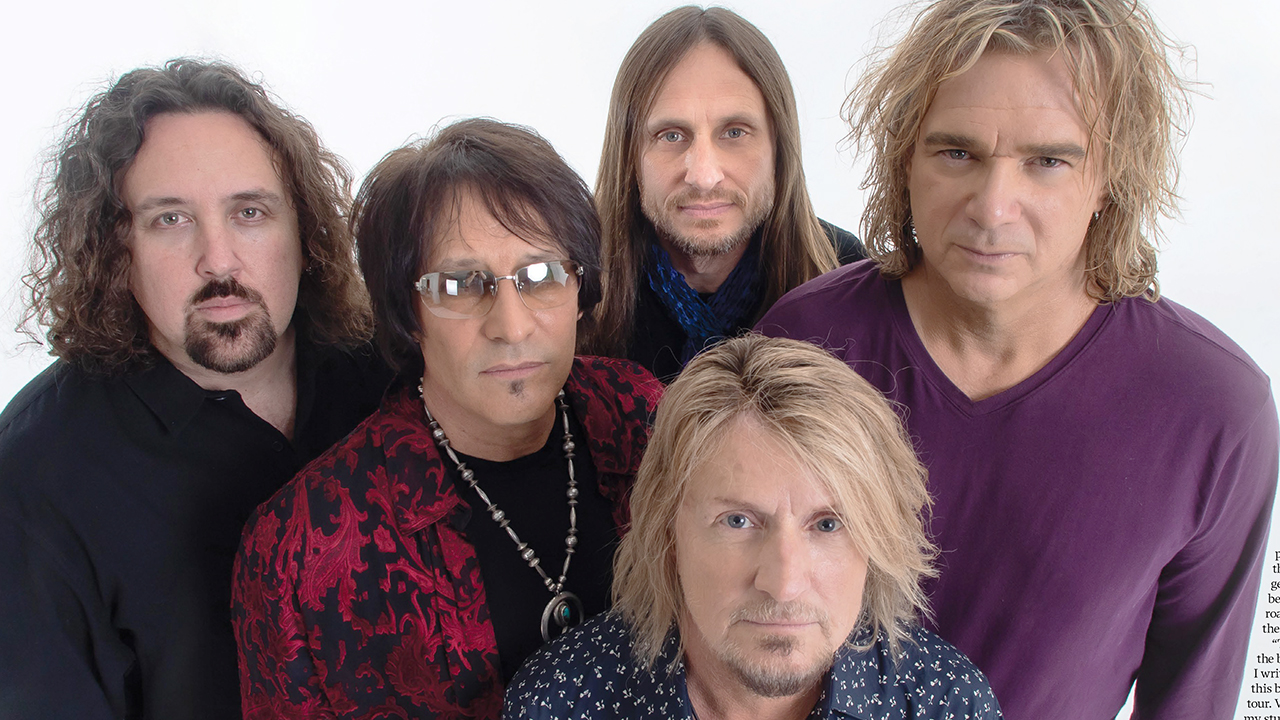Genesis, Peter Gabriel and Six Of The Best
It's the reunion prog fans probably want more than any other. It happened just once. In 1982. And this is the story...
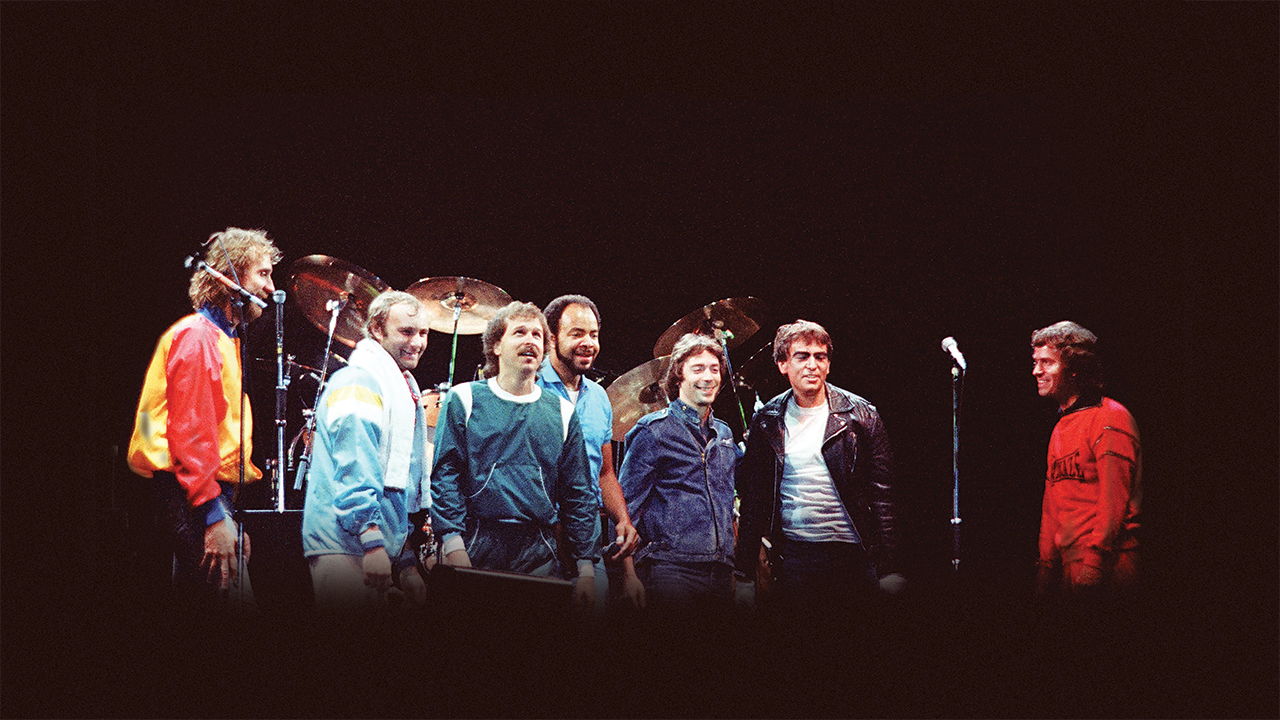
Select the newsletters you’d like to receive. Then, add your email to sign up.
You are now subscribed
Your newsletter sign-up was successful
Want to add more newsletters?
It was almost as unbelievable as a storyline on one of their early albums. In October 1982, Genesis reunited with their mercurial co-founder and original lead singer Peter Gabriel for a one-off concert in an act of generosity that underlined the group’s inherent grace.
Possibly the most successful school band ever, Genesis, by this time, were well on their way to a level of stardom that could not have been imagined when Gabriel had left them after the troubled The Lamb Lies Down On Broadway album and tour in 1974/1975. In fact, many had simply written the group off, thinking that they were Gabriel’s backing band, without realising he was merely part of a collective.
After stepping out of the machinery of Genesis, Peter Gabriel had carved himself a niche as one of art-pop’s key troubadours. No longer restrained by his old school pals, each of his solo albums highlighted his adventurousness, sense of play, logic and integrity. However, in 1982, his abundant curiosity had gotten him into a king-sized scrape.
He had co-founded a global music festival, World Of Music And Dance (WOMAD), which ran for three days in Shepton Mallet, Somerset, that July. Although ground-breaking and artistically triumphant, it was a commercial calamity and had run massively aground. As Gabriel was ‘the famous face’ on the organising committee, he was faced with colossal debts, incensed creditors, potential bankruptcy and, far worse, alleged death threats against himself and his family.
On hearing this, his old band agreed to reunite with him for a concert for old time’s sake to save him – and his festival – from ruin. They would donate all the proceeds from this event to WOMAD to get it out of its huge hole. And speaking of huge holes, they chose to put on the show in a colossal re-purposed clay pit, 55 miles north of central London in Milton Keynes, one of the new towns designated by the UK government after the Second World War. The Milton Keynes Bowl – as the venue was grandly known – had opened in 1979, and earlier in 1982 had played host to an enormous event by Queen.
The Genesis reunion, known as Six Of The Best, was held on October 2, 1982. Aside from it being Mike Rutherford’s 32nd birthday, it was a day when it rained and rained and rained and rained. And rained.
With a mixture of new interviews and on-the-record information, this is the story of the concert, an improbable, yet ultimately triumphant day.
Sign up below to get the latest from Prog, plus exclusive special offers, direct to your inbox!

Dramatis Personae (in order of appearance)
PETER GABRIEL
Former Genesis frontman (from 1967–1975), solo artist and the co-founder of WOMAD festival
DARYL STUERMER
Touring guitarist with Genesis from 1978
MIKE RUTHERFORD
Bassist-guitarist with Genesis from 1967
RICHARD MACPHAIL
One-time ‘sixth member’ of Genesis
SIMON BRENNER
Keyboardist with Talk Talk, 1981-1983
STEVE HACKETT
Guitarist with Genesis, 1971–1977
GARY HARRIES
An attendee
ROGER MORGAN
Editor of Afterglow fanzine
KEV MELLOTRON
An attendee
JOHN CHADWICK
An attendee
TONY STRATTON-SMITH
Charisma Records founder and Genesis manager 1970-1973
STEVEN PRITCHARD
Co-founder of WOMAD and journalist with Bristol Recorder and The Recorder
GAIL COLSON
Peter Gabriel’s manager, 1977-1990
PETER HAMMILL
Van der Graaf Generator frontman and performer at WOMAD 1982
PHIL COLLINS
Drummer and vocalist with Genesis from 1970
TONY BANKS
Keyboardist with Genesis from 1967
CHESTER THOMPSON
Live drummer with Genesis, 1976-1992 and 2007
HUGH FIELDER
Journalist with Sounds magazine
DAVID BUCKLEY
An attendee

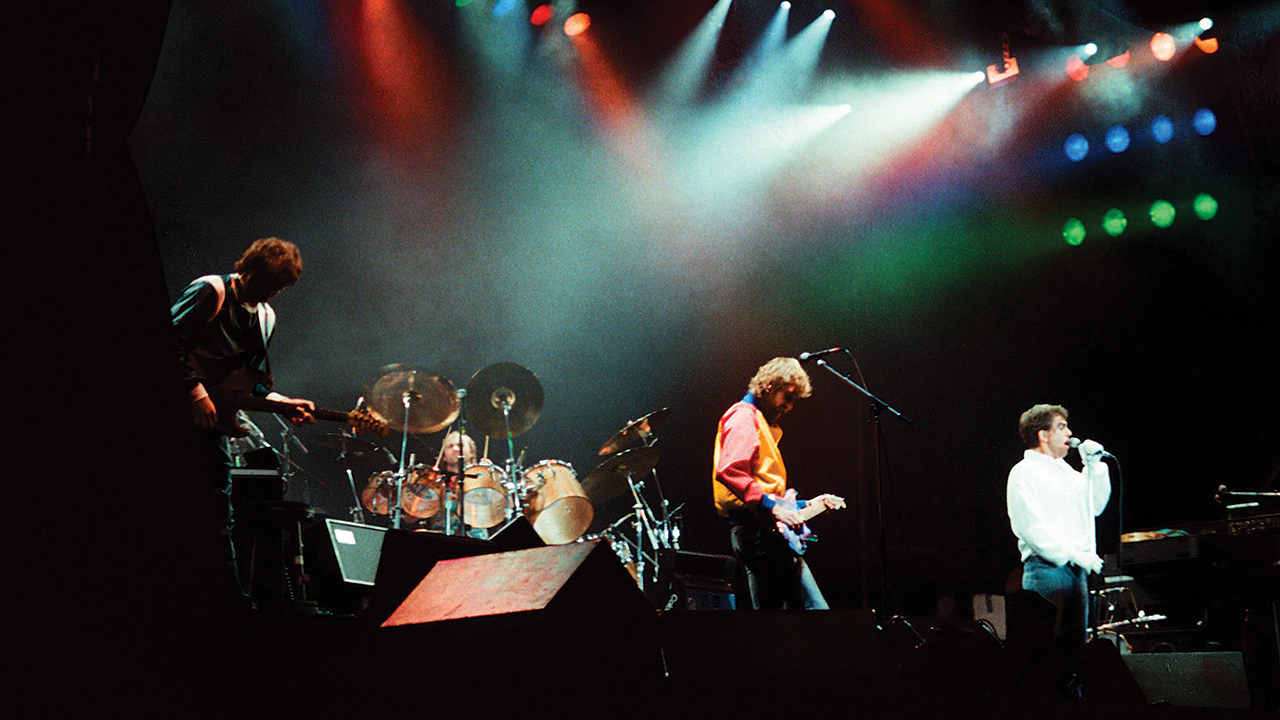
PREFACE: TO THE MULTITUDE WHO STAND IN THE RAIN, MILTON KEYNES OCTOBER 1982
No account of Six Of The Best can ever be made without talking about just how awful the weather was. Everyone was not just soaked, they were sodden. Sopping. Drenched. Saturated. So, let us first deal with the elephant in the room directly…
Peter Gabriel: It was pissing down with rain.
Daryl Stuermer: I remember the rain.
Mike Rutherford: It was pissing with rain.
Richard Macphail: It literally is the only day I remember in all my life
when it was raining when we got up, rained all day, and was raining when we went to sleep. In England, it so rarely does that. It was solid, the whole day. It was extraordinary.
Simon Brenner: I don’t remember much apart from that it was raining.
Steve Hackett: It poured all day and all night. Everybody remembers that. Legendarily wet, seems to be the Genesis curse. If there’s something taking place outdoors, it will rain; that was certainly true of my time with the band. And I think way beyond all that, too.
Peter Gabriel: It started at about 6am and went on to 2am, solid rain.
Gary Harries: It did not let up all day. By the end of the show, we were standing in super-slimy mud that was ankle-deep across the entire front of the stage area.
Roger Morgan: That damned deluge… I thought of building an ark. I was reminded of the 1950s Ray Bradbury sci-fi short story The Long Rain, about astronauts driven mad on a planet
by the constant rain hammering on their heads.
Kev Mellotron: Rain? I’ve never been so wet in my life. I was completely caked in mud!
John Chadwick: It was awful – I was soaked through to the skin by the end.
Tony Stratton-Smith: Only a Genesis audience can make a Pakamac look like a kaftan.
ONE BEYOND YOUR SHOW: WOMAD JULY 1982
As we dry, let us go back to the beginning, when a noble idea by Peter Gabriel in 1980 slowly began to turn into a reality, and WOMAD was born.
Stephen Pritchard: In October 1980, Thomas Brooman and I interviewed Peter Gabriel for our vinyl-with-magazine creation, The Bristol Recorder, later The Recorder. Peter generously gave us previously unreleased tracks for our record. After the interview, we talked about a tape of Indonesian gamelan music that I had in my pocket, Thomas’ experience of South American music and Peter’s work with rhythms from various African countries.
Peter Gabriel: It was a simple idea: to create a festival out of all the brilliant music and art made all over the world, stuff made outside of the mainstream – music that wasn’t getting on the radio and was even harder to find in record stores.
Stephen Pritchard: The process was entirely new to us. The largest events we had done were promotions of local bands, in local venues. There were far fewer large festivals at that time. In continental Europe, non-Western arts were showcased in government funded buildings. The Drummers Of Burundi and the Qawwali legends, the Sabri Brothers, were an early inspiration.
Peter Gabriel: We were having regular brainstorming meetings and [they] offered to take over the day-to-day management in their Bristol office.
Gail Colson: I was worried about the people Peter was surrounding himself with and who he was leaving to organise it. I had nothing against them personally, but they had no experience of running a festival at all. I had been very friendly with the Pendletons and the rest of the people who ran the Reading Festival and owned the Marquee club and the original Jazz & Blues Festivals and felt that he should use them.
Steve Hackett: I think WOMAD was an extraordinary idea. I know it was largely sold because of Peter.
Gail Colson: I said to my PA, while we were driving to Shepton Mallet, that something was wrong. She’d never been to a festival and asked me why. My reply was that we were the only car on the road and we should’ve been in a traffic jam! When we arrived there seemed to be more people walking about with laminates than there were audience.
Peter Hammill: Artistically it was well on-the-spot; I particularly enjoyed the last night headline band of PG, David Rhodes, Shankar, Larry Fast, Stewart Copeland and myself. Very wild.
Stephen Pritchard: One journalist wrote of hearing English church bells anew as she left the site: echoes across cultures, sympathetic sounds.
Gail Colson: I spent most of the time in the box office, collecting whatever cash there was and prioritising who should be paid immediately and who could wait. The Drummers Of Burundi – pay; the Chinese delegation – pay.
Peter Gabriel: I’m very hopeful that even if we can’t continue the idea is going to be pushed through by some others because if nothing else, we showed that a rock audience could give a standing ovation to a 50-year-old Chinese horn player – that was great.
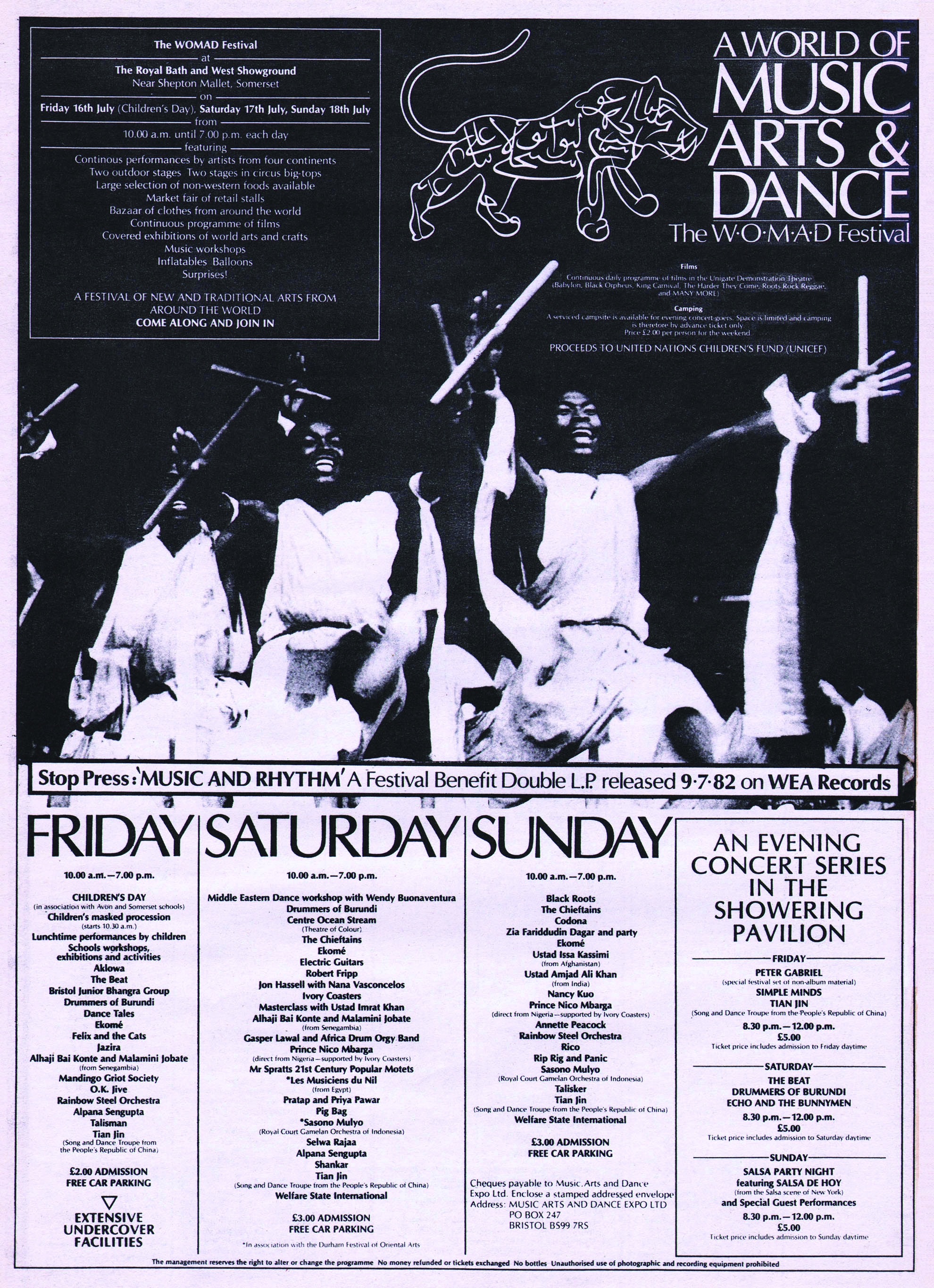
TO SAVE MY STEEPLE, I VISITED PEOPLE: THE AFTERMATH OF WOMAD
It soon became clear that due to poor weather, a national train strike and a lack of understanding about what a festival of world music and dance might entail, WOMAD had not made any money. It was in debt to a figure quoted between £190,000 to £200,000. A lot of money now, but a huge sum then.
Stephen Pritchard: And then it was over. The NME headline proclaimed ‘WOMAD brilliant but bust.’ Despair.
Peter Gabriel: Ambition got ahead of reality. We went in there with evangelical fervour, and we thought everyone else was going to be as excited as we were. It became a nightmare experience when we realised there was no way we were getting the tickets to cover our costs. The debts were way above what I could manage but people saw me as the only fat cat worth squeezing so I got a lot of nasty phone calls and a death threat.
Peter Hammill: It was a wonderful festival but obviously the weather played havoc with the finances.
Peter Gabriel: It was clear we had an artistic success – but financially it delivered us a knock-out punch. It was the new and scary territory of bankruptcy we had entered – we had lost a lot of money, certainly more than I could sort out and we had no idea how we were going to pay off the debts. People were pursuing us very hard.
Richard Macphail: I was mostly in touch with [Peter’s then-wife] Jill Gabriel around then. She was absolutely terrified to pick up the phone. They were living at Ashcombe Farm, that crazy place that Peter rented at the time, where he built the studio in a tumble-down barn where you couldn’t even lock the front door. Jill filled me in with what was going on and it really was very worrying.
Peter Gabriel: My part in the whole thing was not as great as it might have been. I was busy working on my album [Peter Gabriel 4, aka Security] at the same time as helping these people from the Bristol Recorder who’d given up two years of their lives and were living on dole money to set this up.
Steve Hackett: It lost something like £250,000.
Peter Hammill: It was very stressful for Peter with all the flak flying.
Peter Gabriel: Tony Smith and my old band Genesis very generously offered to do a benefit concert to pay off the debts, for which I’ll always be grateful.
Phil Collins: Whether or not he felt he needed our help to get himself out of trouble, it made sense to us, and it was certainly not a condescending gesture.
Mike Rutherford: It seemed like a pretty obvious thing to do… the problem was logistics.
Tony Banks: People had been asking us to organise some sort of get-together for years and years and this seemed a very good reason to do it.
Chester Thompson: They were all good friends to the point where they said, “Let’s do this.”
ALL THOSE NUMBERS GIVE ME GUIDANCE: THE ANNOUNCEMENT, THE REHEARSALS
When announced in the music press late that August, the old Genesis fans couldn’t quite believe it. At £9 in advance or a tenner on the day (in the days when you could still ‘walk up’ to a big festival), it represented a huge bargain and an opportunity to see their heroes reunited. Fortunately, Genesis would be just at the closing stages of the UK leg of their Three Sides Live tour, so the machinery was up and running. Gabriel had spent most of the previous year recording the sound of his drainpipe being hit to go on his fourth album, and was about to tour himself.
Hugh Fielder: Both sides were keen to play down any reunion ballyhoo – which is why you didn’t see the word Genesis mentioned anywhere in the publicity – because getting together again made little career sense for either of them.
Peter Gabriel: I think I will enjoy it but having tried for seven years to get away from the image of being ex-Genesis there’s obviously a certain amount of stepping back. I don’t think they would choose at this point to work with me or I with them but as they’ve offered, it’s very generous. I’m very grateful and I’m intending to enjoy myself.
Steve Hackett: I was recording in Brazil at the time. I got the call, flew 3,000 miles from Rio to get back in time for a couple of numbers. I’d flown in mostly overnight on the red eye.
Richard Macphail: I heard about the concert from Tony Smith. The timing was such that they were all geared up to go on the road. Otherwise, it wouldn’t have been possible and all they did is stick a date on the end of the British tour.
Mike Rutherford: We’ve been learning the old songs on the bus between gigs on our British tour because we haven’t got much time to rehearse them. They sound fine but I can’t compare them to what we do now because it’s another era. Genesis and Pete have gone in very different directions since we parted but that’s irrelevant for an event like this.
Phil Collins: It’s going to be strange getting back behind the drum kit full time again, but I’m looking forward to the challenge and I’m going on a crash course to adjust to my former role in the band. In fact, Pete was suggesting that we duet on The Lamb… but I said I’d prefer to stick behind the drums.
Peter Gabriel: I’m sure that, as with anyone reliving their youth, I’m going to feel a lot of nostalgia about the gig although in terms of career moves, it’s probably not a very good idea for them or for me, but financially, it’s going to be very useful for the WOMAD festival.
Tony Banks: I don’t know if we can really live up to what people are expecting. What’s strange is that the last tour we did with Pete playing The Lamb Lies Down On Broadway we were playing town halls and not even filling most of them but now there’s an awful lot of people who want to hear it. I just hope they haven’t built it up into something it can never be.
Phil Collins: We gathered at the Hammersmith Odeon one afternoon to run through some of the tunes. We were very under-rehearsed because we only spent a couple of afternoons working at it.
Steve Hackett: I rehearsed the previous afternoon at Hammersmith, where they were playing shows. I can’t remember what time I got there. I would have done more, but that wasn’t on offer.
Richard Macphail: Of course, I was keen to be there. It was very special. I really wasn’t part of the camp at that time, or in the inner sanctum.
Simon Brenner: I always loved Peter Gabriel and early Genesis. But then [in the early 80s], everybody was quite uppity about music like that. Mark [Hollis, Talk Talk] was quite selective in who we were allowed to talk about. Bands had to be a bit more jazzy or a bit more radical.
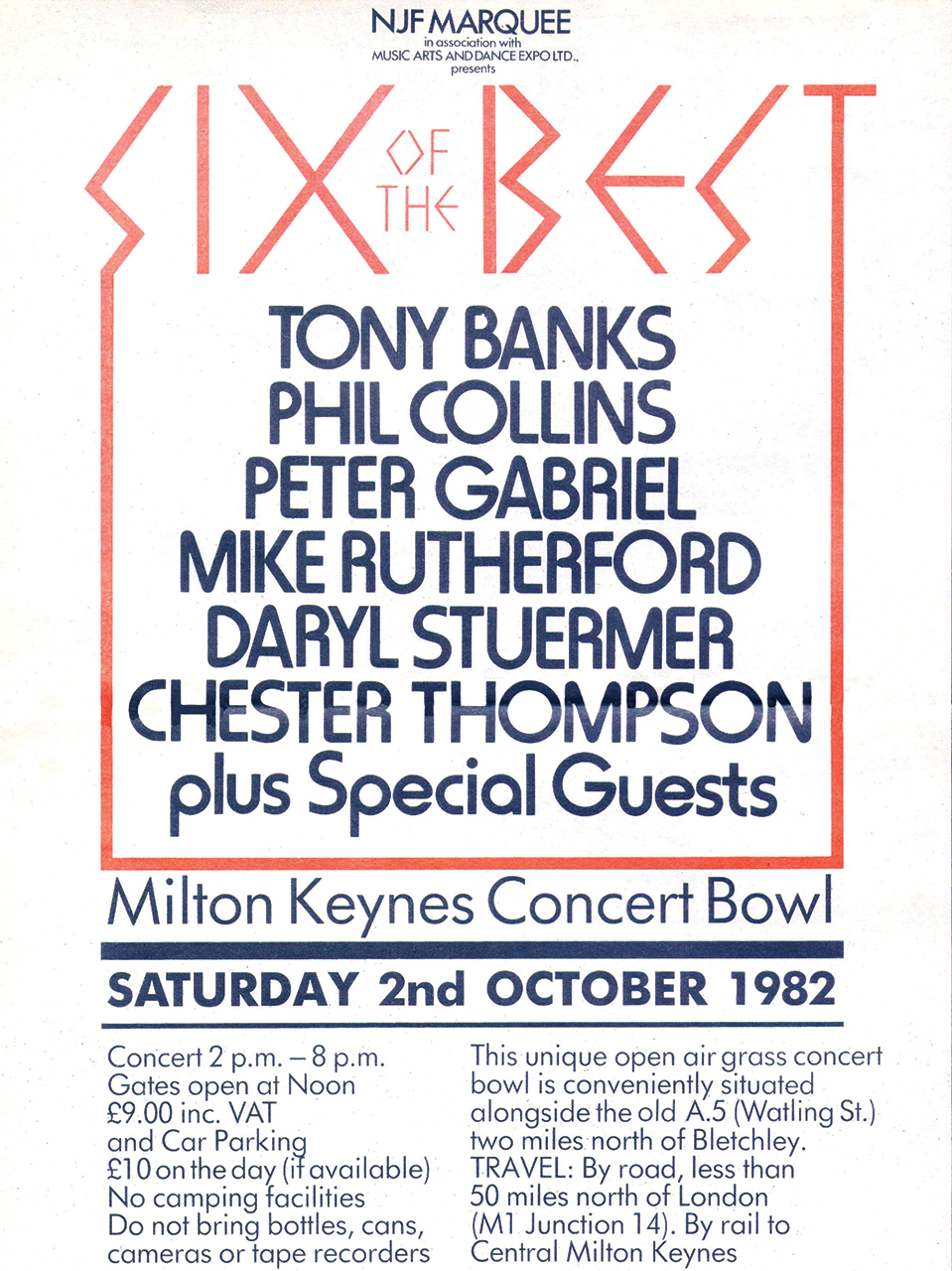
LOST WITHIN THIS HALF-WORLD: OCTOBER 2, 1982
And so, 60,000 faithful fans travelled from all over the country, and some from around the globe, to witness this one-off spectacle at the Bowl “conveniently situated on the A5, two miles north of Bletchley”. Parents dropped off their children, cheap chartered coaches arrived, trains emptied their loads at Milton Keynes Central for people to walk the mile to the site. The gates opened at noon, and the bill was rounded out by John Martyn, The Blues Band and Talk Talk.
David Buckley: My brother drove us down from Liverpool for the day. Genesis were massive in Liverpool – they appealed to working-class kids. Much as Pink Floyd did.
John Chadwick: We got our tickets through a company called Cavendish Travel, in our hometown of Sheffield. They sold coach and ticket packages to concerts all over the UK.
Gary Harries: There were a bunch of us, around 10 or 12. The father of one of our friends had recently bought one of those yellow Post Office Commer vans and he’d put bench seating in the back. We all piled in there and slowly made our way to Milton Keynes. The van was alight with everyone talking about what tracks they’d play and whether Hackett would make an appearance. Once in the queue by our gate, we spoke with the other fans that were there before us. To our amazement there were people from Italy and Canada along with British fans too.
Roger Morgan: Our first impressions of The Bowl were disappointing, to say the least! I had envisioned something akin to the Hollywood Bowl, not a grassy dip in a large field!
Richard Macphail: Milton Keynes was defined by the roads. It’s almost like [North] America – you’ve got city blocks. And this was one of them quite on the outskirts, quite.far from the centre. It was all done by the Milton Keynes Development Corporation, who were, coincidentally, quite instrumental in the development of energy efficiency and housing, which became my second career.
Gary Harries: We arrived the night before and made our way to the entrance gate on our ticket. We slept overnight in the cold and damp to try and get an advantageous position once the gates opened.
Simon Brenner: It was like one of those European football stadiums that’s slightly too big for what it’s doing.
Kev Mellotron: I took my place around 50 yards from stage. Never moved from that spot all day, not even for the loo!
Roger Morgan: We stood there slowly sinking, soaked to the skin near front-left of the stage. We used to get to the front back then.
David Buckley: Our mum decided that a piece of her homemade fruitcake was enough to sustain us for the entire day.
Richard Macphail: It’s [been] a long time since I’d seen a lot of those people. There were some roadies from both the Gabriel camp and the Genesis camp. It was a reunion in many senses of the word.
Simon Brenner: We got out of the car and we went to this caravan. We had a stylist at that time, and they wanted to put us in something white. I’ve read recently that it was because they wanted to make us look like A Clockwork Orange. We looked like
a right bunch, and the floor of the caravan was already covered in mud.
Gary Harries: John Martyn opened proceedings at just after two. He was promoting Well Kept Secret at the time. He had a band with him and as the opener had a lot on his hands. I thought he did a grand job but he’s not to everyone’s taste.
Roger Morgan: I liked John Martyn through his association with Phil Collins and hoped Phil would join him on drums. Sadly, he didn’t.
Simon Brenner: Everybody was too far away, except for this mass of people in the middle.
Gary Harries: The Blues Band didn’t really know how to approach the devoted prog audience.
Kev Mellotron: I had seen The Blues Band before. They did what it said on the tin – 12-bar blues expertly played. I remember Paul Jones asking if there were any Tories in the audience.
Richard Macphail: Paul Jones had this briefcase of harmonicas, all in different keys. I was impressed. That’s the thing with the harmonica, you’ve got to use the one that the key of the song is in. Perhaps that’s why harmonicas and prog don’t really go together, because they’re changing keys all the time. Because of the likes of Tony Banks!
David Buckley: We just sat in the rain through Paul Jones’ blues.
Gary Harries: Talk Talk didn’t stand a chance.
Simon Brenner: We were togged up in our whites, and then we had to go through what was like the Somme to get to the stage. It was not near, and it was pouring. By the time we got there, we were muddy, wet; it was fucking horrible. We looked out and there’s this massive bloody great crowd.
David Buckley: When Talk Talk came on, I just saw this barrage of cans and bottles – like a wave of arrows at Agincourt – an incredibly hostile reception. It actually put me
off Genesis fans.
Simon Brenner: I don’t remember much from 40 years ago, but I totally remember a sea of faces of miserable wet men just hating us.
Kev Mellotron: Talk Talk were given a hard time unjustly, in my opinion. I thought they were quite good.
Simon Brenner: They announced we were coming on. And there was nothing. We finally came on in our whites. People started booing and jeering.
John Chadwick: It was still very early in their career and they sounded like Duran Duran.
Simon Brenner: Mark was very good at many things, but communicating with audiences was not one of them. He said something like, “Hello, are you alright?”, and everybody replied, “Fuck off!”
John Chadwick: They seemed out of place on the day.
Simon Brenner: We started off with the track Today, and very soon things started landing on the stage – mud and bags of god-knows-what. And the main game became, “Can we hit the keyboards?”
David Buckley: The fans seemed totally resistant to anything that could loosely be called ‘pop’ and were obviously prejudiced against the synth – which is ironic, as Tony Banks had been using one since 1973.
Simon Brenner: We did six tracks. Somebody hit the keyboard with something and there was a huge cheer. We finished and we were shell shocked.
Richard Macphail: I was backstage until Genesis went on. I saw Toto arrive. These two limos pulled up with these very groovy- looking people and then suddenly among them all was [journalist and photographer] Armando Gallo. I went over and we had a hug. As I remember [actor and Steve Porcaro’s then-girlfriend] Rosanna Arquette was the only girl there.
Simon Brenner: We were cold, wet and miserable. Nobody talked very much. We thought we would be able to get a hot drink. We went into a tent that had the catering for Genesis. We asked if we could have a cup of tea; they told us to fuck off – we weren’t allowed to use Genesis’ mugs or something like that.
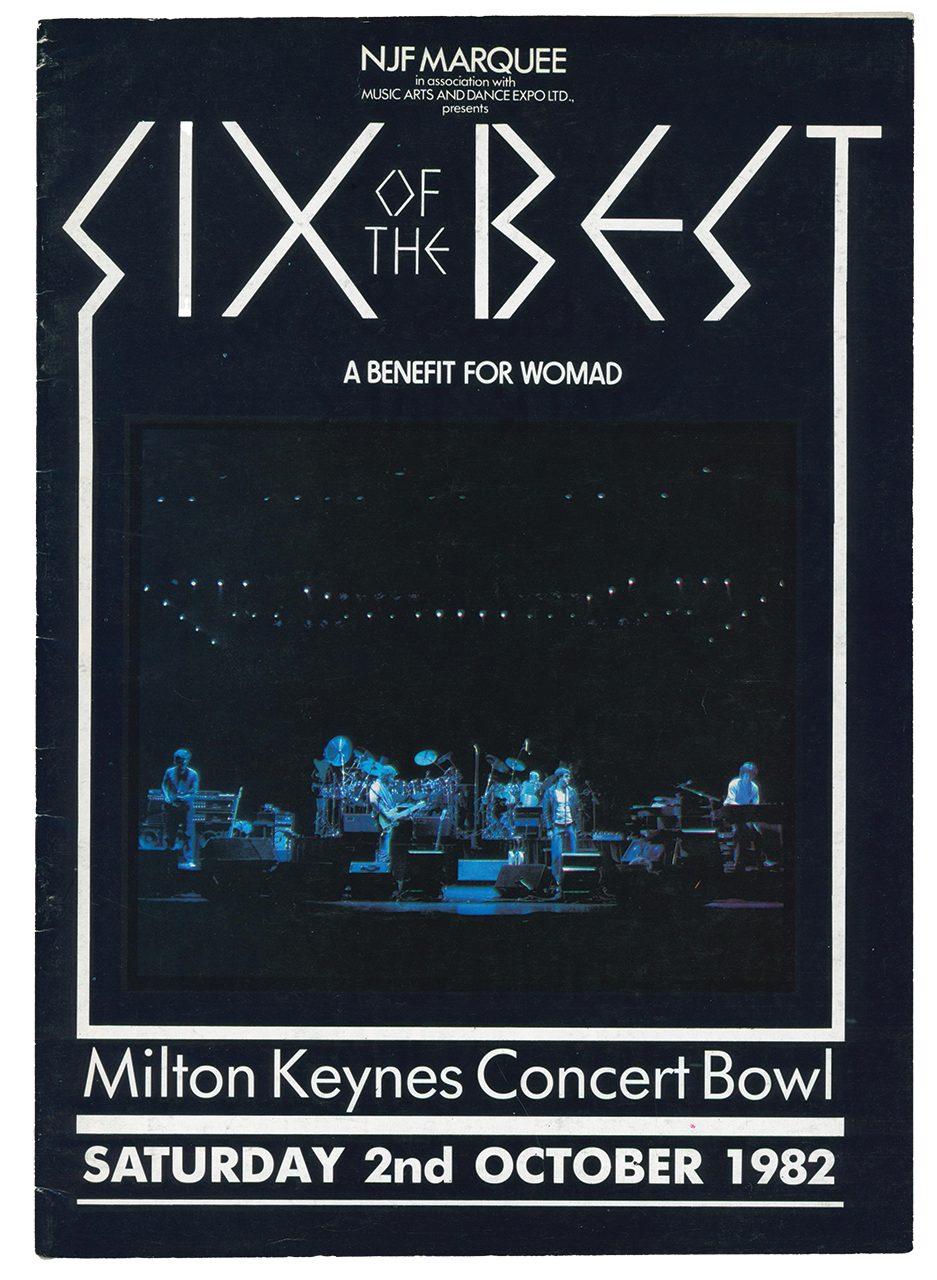
THE CAPTAIN LEADS HIS DANCE ON THROUGH THE NIGHT: SIX OF THE BEST
After all that, at around 6pm, five of the six – Tony Banks, Phil Collins, Mike Rutherford, Chester Thompson and Daryl Stuermer – finally took to the stage. The sixth member, as ever, took a different approach. Almost 10 years to the
day after he’d appeared onstage in a dress wearing the head of a fox without telling his bandmates, he was still up to his old tricks.
Kev Mellotron: Four pallbearers appeared with a white coffin, which they placed centre stage. Out emerged Peter Gabriel in his black leather jacket. Rael was back!
David Buckley: Peter Gabriel coming onstage in a coffin was so funny and so perfect
Gary Harries: The opening of it all was, and still is, the most dramatic and sensational start to a gig I have ever witnessed. To be brought on to the stage in a coffin to the opening of Back In NYC was unbearable for the fans. When the top of the coffin came off and Peter Gabriel rose from out of it dressed as Rael, the crowd were absolutely stunned. Nobody had given it a thought that he might be ‘in character’ right from the off, maybe the old man mask might come out or the flower later, but to see him rise was an incredible moment and still gives me goosebumps.
Mike Rutherford: We all smiled when the coffin came on. It was like, “That’s our Pete!”
Phil Collins: If he had told us he was thinking of coming on in a coffin we would probably have said, “Is that really the best thing?” But he did it and it was funny.
Daryl Stuermer: These pallbearers brought him out and I don’t think any of us knew that was going to happen. Then they put the coffin down and it was like he came back from the dead… It was a lot of fun.
Simon Brenner: I remember hearing Genesis being introduced and start up. We went home in the rain. As I’d got up really early, I got home, had a cup of tea and went to bed.
Peter Gabriel (onstage): Some of you may be wondering what we’re doing here. But actually, this is a sequence from a previous event by the name of WOMAD… a great event that lost a pile of money. But I’m very lucky to have a group of people [here] who support these ideals, so in return for your cash we’ll give you what we think you will like from this combination.
Chester Thompson: The vibe was great.
Richard Macphail: Yes, there were very good vibes.
Kev Mellotron: Peter was dashing around, forgetting his words!
Gary Harries: It was amazing. There were tracks where Peter had forgotten the words and he was leaning in toward us, gesturing with his hands and encouraging people to help him remember.
Richard Macphail: I was at the mixing desk, where Craig Schertz [1950-2002, known as ‘The Chief’ – Mixing Ed.] from Showco Inc. was looking after the sound. I was in the middle of the audience, and that was the cool thing, as they were all singing louder than Peter. It was very special.
Mike Rutherford: It felt good. It was my birthday.
Steve Hackett: I watched the concert from the wings, and I thought it was very emotional. It was as packed backstage as it was onstage. The magic started to happen just at that moment when Pete started to sing, ‘Can you tell me where my country lies’, that open-ended statement of positive perplexity.
Tony Banks: I was wearing a tracksuit that had ‘kamikaze’ written on it, which underlined my attitude. It was odd, and not as good musically as we had been used to. There were moments when Pete went on to the second drum kit for Turn It On Again, but he couldn’t keep time because he didn’t realise that there was an extra beat in it. It was quite amusing, really.
Hugh Fielder: For nigh on two hours everyone revelled in the pre-1974 glories of Genesis brought up-to-date by the mammoth resources of the 1982 Genesis sound and light show.
Peter Gabriel: It felt a warm occasion, there was a nice feeling up on stage.
Kev Mellotron: It was tremendously emotional, but rather under-rehearsed. It didn’t grab me as much as I thought it would. I had seen The Lamb… tour seven years earlier!
Richard Macphail: It was spotty. Not surprisingly.
David Buckley: I remember Tony Banks’ otherwise smooth and effortless playing was slightly off- beam as his fingers were so cold.
Phil Collins: It all came flooding back: falling over things, pulling microphone leads out of sockets… it was chaos.
Chester Thompson: They set up mics around the stage where he said he was going to be. Come the day of the show, Peter was wherever he was at the moment, which wasn’t where he said he’d be the day before.
Hugh Fielder: Gabriel’s ability to dominate the proceedings was quite astounding. He had remembered the words – which was just as well because the audience had too even though many of them [could] never have seen the two of them together before – and adopted the frontman role in the band with an ease and confidence that must have surprised even Genesis themselves. He had even resurrected the flower mask for Supper’s Ready and taken time out to remember the story on
the cover of the group’s first live album as well.
Roger Morgan: Gabriel singing Supper’s Ready! Rael was Back In NYC! Rain, what rain?
Gary Harries: I think the entire place must have lost their voices when they sang the closing part of Supper’s Ready.
Richard Macphail: It was the old stuff that meant the most to me too; broken record. Peter was in good voice, I remember that. It was great to see him and Phil, working side by side, so well. It was deeply special.
Kev Mellotron: There was a tremendous roar when Steve came on.
Daryl Stuermer: I knew he was there. It’s funny. A lot of times I’m reading YouTube comments and people always pit me and Steve against each other. They’ll say, “I think Steve is better” or they’ll say, “I think Daryl is better.”
Steve Hackett: I’d met Daryl before. He was a very nice guy, and obviously a great player.
Daryl Stuermer: What’s funny is that I get along with Steve really well. I think he’s an excellent guitar player. It’s funny that people are trying to make out that we’re enemies.
Steve Hackett: It was a great memory for all sorts of reasons, a very proud moment and very emotional for me.
John Chadwick: It was an utter delight to see Steve. To see the five of them back together was just wonderful.
Roger Morgan: When Steve came on for the encores, he was met with loud roars and applause and shouts of, “Where have you been?” and, “You’re late!” (Mostly from me!)
Steve Hackett: I was touched that there was a big roar from the crowd when I came on to play the encore. It was the complete team, as far as it was possible, at that point. Not to forget, obviously, my predecessor, Anthony Phillips, of tremendous importance to the band’s development and success. They were big shoes to fill when I first joined.
Tony Stratton-Smith: Tonight, I looked at one aspect of my work [between 1970 and 1982] and, Pepys-style, ‘found it pleasing’. The reunion for this one night of Genesis, Peter Gabriel and Steve Hackett was a happy success, and the members of the band revealed more emotion than one thought they possessed.
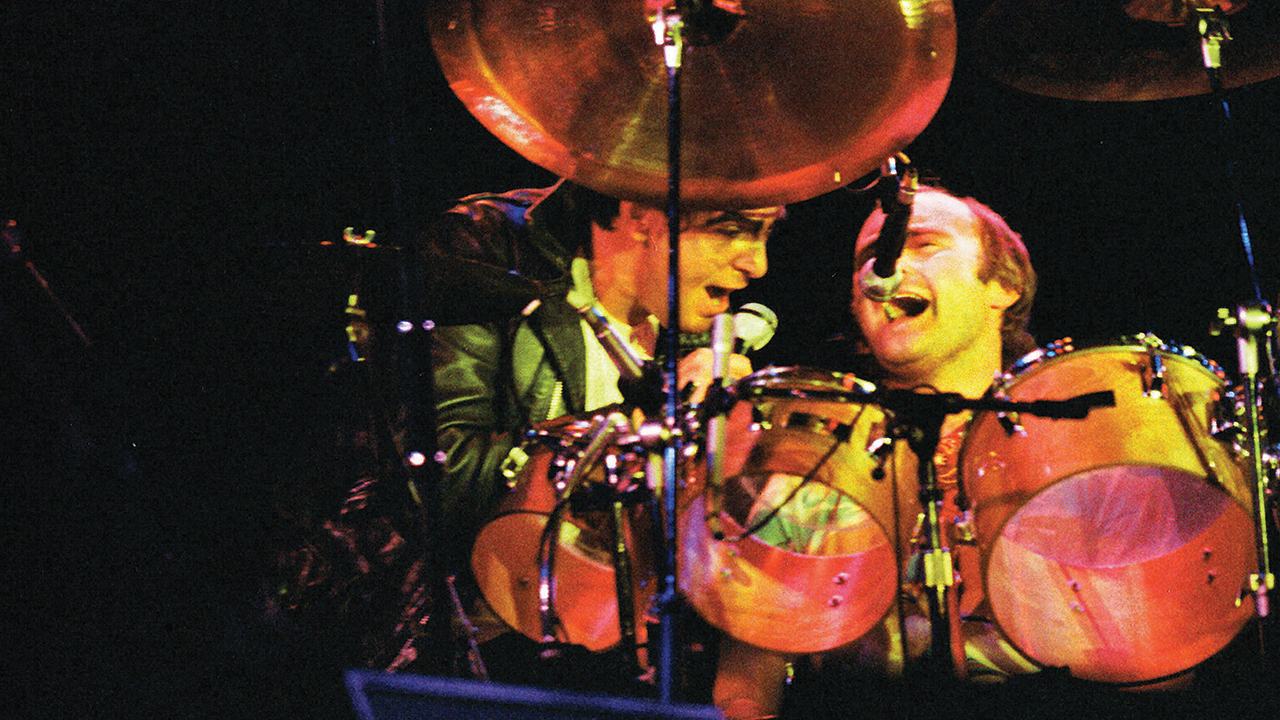
AFTER THE ORDEAL
By 8.30pm, it was all over. As it was highly unlikely all these people would be in the same place again for a considerable time, no one was in a hurry to leave.
Richard Macphail: You know what it’s like with a festival with a big crowd. You either drop everything and do a runner and get out before the crowd, or you just hang back and have a party. Because of the nature of the event, there was no way that anyone was doing a runner; so we all just hung backstage in a drippy sort of marquee.
Mike Rutherford: These things are always so surreal, they go by so fast and before you know it, the event is over. Your mind is so taxed with trying to get the parts right, you miss what’s going on.
Peter Gabriel: It was a bit like going to school when you haven’t been there for 30 years; in this case it was only six years, but it still felt like a lifetime.
Tony Banks: It felt like a bit of a dream. I was very glad when it was over because I hadn’t particularly enjoyed playing that stuff at the time.
Richard Macphail: Everyone was on good form, there were about 50 people backstage. It was Mike’s birthday, and there was a birthday cake. That’s where Peter laid eyes on Rosanna [Arquette, with whom he would later enter into a relationship] and the rest is history.
Tony Stratton-Smith: Mike’s birthday […] gave an additional excuse for much hugging and reminiscence. This was but the continuation of a party spirit effervescing earlier from 60,000 people enduring six hours of incessant rain, and maybe they deserved the biggest hug of all.
Steve Hackett: Strat was standing there on his own, looking like a very lonely man, having a cup of tea at the last remaining hot dog stand or whatever it was. We both stood there in the rain. We said what a marvellous evening it had been. We’d been close back in the day; I spent a lot of time with him. It was lovely to see him.
Richard Macphail: I only just sort of waved at Strat. I didn’t have a chance to chat – that would have been the last time I saw him.
Hugh Fielder: If this had been the opening night of a reunion tour the inquest would probably still be going on over how to improve things as it probably fell some way short of Genesis and Gabriel’s standards of perfection.
Steve Hackett: I got riotously drunk afterwards. I have to say everyone was. It was such a party, such a vibe. I think I was literally carried out of the place at the end of it; a combination of the excitement, jetlag and one bottle of pop too many. It was an extraordinary thing. By the end of it, we were all out of our brains hugging each other, as emotional as a Genesis team can get.
Richard Macphail: I don’t remember people being very drunk, but I was driving so I don’t recall a drop of alcohol passing my lips all day. But it was a very jolly atmosphere, a unique event in the annals of Genesis. On the other hand, it had been
a very long day, and I was quite keen to get away as soon as was practicable
into the roundabouts of Milton Keynes.
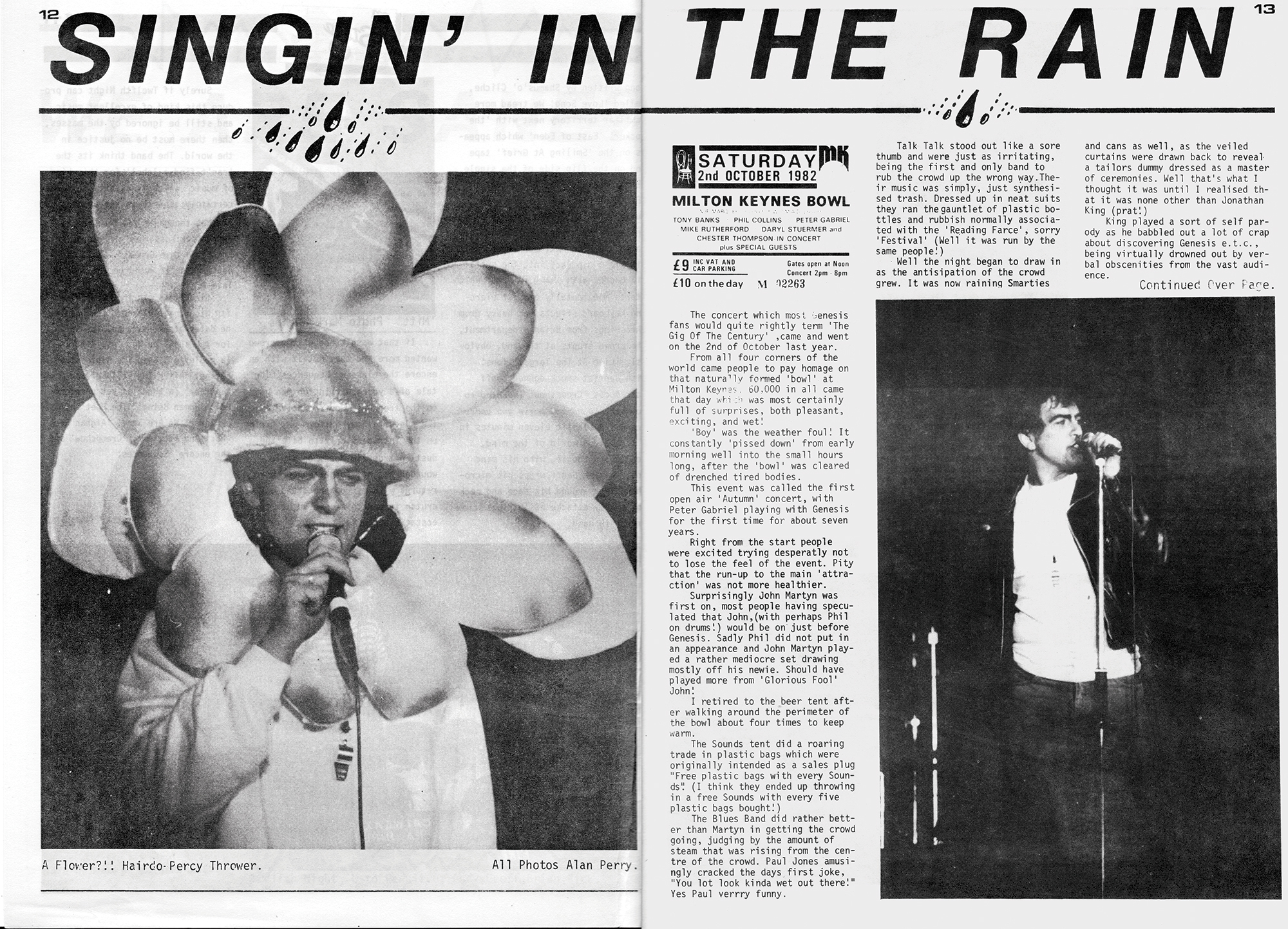
AFTERGLOW
Allegedly never filmed or recorded professionally, the show remains an exceptionally fond memory that achieved its aims. Albeit one that triggers tremors of trench foot.
Mike Rutherford: I regret it now, but I was not keen to record the show.
Richard Macphail: I’m really glad I went. It was a memorable, historic day. It just brought joy to my heart to hear the crowd all singing along.
Gary Harries: People were soaked to the skin but seemed to be in a state of mind that dismissed all of that as they had just witnessed something amazing.
Kev Mellotron: So glad I was there… The atmosphere was extraordinary!
Roger Morgan: Damn that apocalypse weather, sludge and mud. We witnessed what once was and briefly what was again!
Gary Harries: We travelled home soaked to the skin and cold in the back of that van but a happier bunch of fans you would be hard pressed to find.
Tony Banks: That show did go some way to sorting out Peter’s financial problem; now WOMAD is a monster thing.
Phil Collins: Importantly, we’ve helped stop our mate being jailed, or worse.
Steve Hackett: It was lovely to be involved, and lovely to do it for Pete and WOMAD. Everyone came together for all the right reasons: it wasn’t about the precision of the night, it was the spirit of it that was so important
Peter Gabriel: Although they are often portrayed as very unhip, exploitative capitalist men of the rock world, it’s entirely down to them [Genesis] that the WOMAD movement can move, or struggle, or crawl forward, and they didn’t get anything out of it.
Steve Hackett: I think loads of people caught colds and flu after that, because if you didn’t have an umbrella, you were literally sunk.
David Buckley: I was off school for the week as I got bronchitis from the cold and wet.
Gary Harries: Six Of The Best is without doubt the best gig I have ever been to and the fact that the friends I went with make a point of speaking to each other on October 2 every year is a tribute to that.
Forty years later, like so many things in the history of Genesis, Six Of The Best all seems so fantastical, it’s another ‘did-it-really-happen?’ moment in their storied career. Happen it did, a last stop off before all parties moved to another level of fame and/or success. The scale of their collective talent was underlined by the fact that four years after this concert, both Genesis and Peter Gabriel enjoyed US No.1 hit singles, and their wayward son, Steve Hackett – himself in that US Top 50 with the group GTR – went on to enjoy
a globally successful solo career.
Musically, and meteorologically, Six Of The Best may not have been the best day out, but its impact can be felt to this day. In 2022, WOMAD celebrated its 40th anniversary, Genesis retired from the concert stage after a fantastically successful and much-delayed tour, Hackett burns the Genesis flame with his bi-annual Genesis Revisited tours and releases… and Peter Gabriel? He’s about to issue his eighth solo album, some 21 years since his last.

New interviews with Simon Brenner, Steve Hackett, Richard Macphail and attendees, September 2022. On the record quotes come from NME, 1982; Six Of The Best event programme; Tony Banks, Gail Colson, Peter Hammill, Mike Rutherford quotes from Without Frontiers – The Life and Music Of Peter Gabriel by Daryl Easlea. Other quotes from Genesis Revisited by Alan Hewitt; Genesis: Chapter & Verse; Hugh Fielder, Sounds, 9 October 1982; Chester Thompson, Rolling Stone interview, 2020; Phil Collins Not Dead Yet; Daryl Stuermer, Rolling Stone interview, 2019; Tony Stratton-Smith, Music Week October 23, 1982; Stephen Pritchard taken from sleevenotes for Live At WOMAD 1982 (Real World LPRW245), used with kind permission by Oran Mullan/Real World.
Daryl Easlea has contributed to Prog since its first edition, and has written cover features on Pink Floyd, Genesis, Kate Bush, Peter Gabriel and Gentle Giant. After 20 years in music retail, when Daryl worked full-time at Record Collector, his broad tastes and knowledge led to him being deemed a ‘generalist.’ DJ, compere, and consultant to record companies, his books explore prog, populist African-American music and pop eccentrics. Currently writing Whatever Happened To Slade?, Daryl broadcasts Easlea Like A Sunday Morning on Ship Full Of Bombs, can be seen on Channel 5 talking about pop and hosts the M Means Music podcast.
